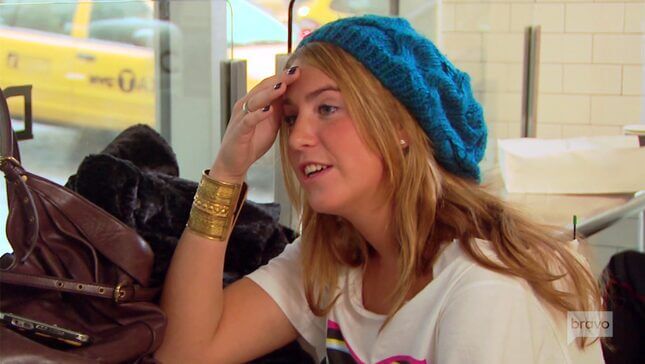

At the height of Gossip Girl’s popularity in 2009, Bravo premiered NYC Prep, a series billed as a real-life counterpart, featuring real teens attending prep school in New York City, all of whom do their best to map their personalities into the familiar archetypes established by the source material: rich playboy, ruthless overachiever, etcetera. A hearty dose of truth that feels absent from Bravo’s current reality TV offerings, NYC Prep was sold to its participants as a docu-drama—not quite a documentary, but not reality either. The fun, now rewatching it many years later, is in seeing the teens try to navigate that murky directive by playing the parts they were assigned.
There’s Jessie, an ambitious blonde with an unwavering dedication to Operation Smile, a charity organization that is mentioned roughly every episode, and her “best friend,” P.C., an obnoxious boy with whom she is definitely in love. Camille, a precocious high school junior, is hellbent on attending Harvard and is also dedicated to questionable headband choices; she spends the duration of the eight episodes attempting to snivel her way onto the board of Operation Smile to pad her nascent resumé and fulfill the destiny she’s laid out for herself.
Of the two leads, Jessie is by far the most ruthless, but also, she makes me a little sad. Her relationship with P.C., the grandson of the Secretary of Commerce under Nixon, looks like the kind of high school relationship that feels earth-shattering in the moment, replete with soaring highs and crushing lows. Consider the scene halfway through the series that finds Jessie waiting for P.C. at a Dean and DeLuca. When he finally shows up, offering his exhaustion as an excuse for his lateness, she screams with the rage of a fed-up housewife: “Really, when I’m just tired, I CALL MY FRIENDS.” Jessie, babe, it is not that deep, but I get it. P.C. inspires rage by simply existing as he is at the point in time—a very wealthy teenager who flirts just enough to mesmerize his unwitting victim, which allows space for him to be a jerk.
-

-

-

-

-

-

-

-

-

-

-

-

-

-

-

-

-

-

-

-

-

-

-

-

-

-

-

-

-

-

-

-

-

-

-

-

-

-

-

-








































